Femia > Health Library > Getting Pregnant > Challenges > Why am I not getting pregnant? Understanding common reasons for conception challenges
Why am I not getting pregnant? Understanding common reasons for conception challenges
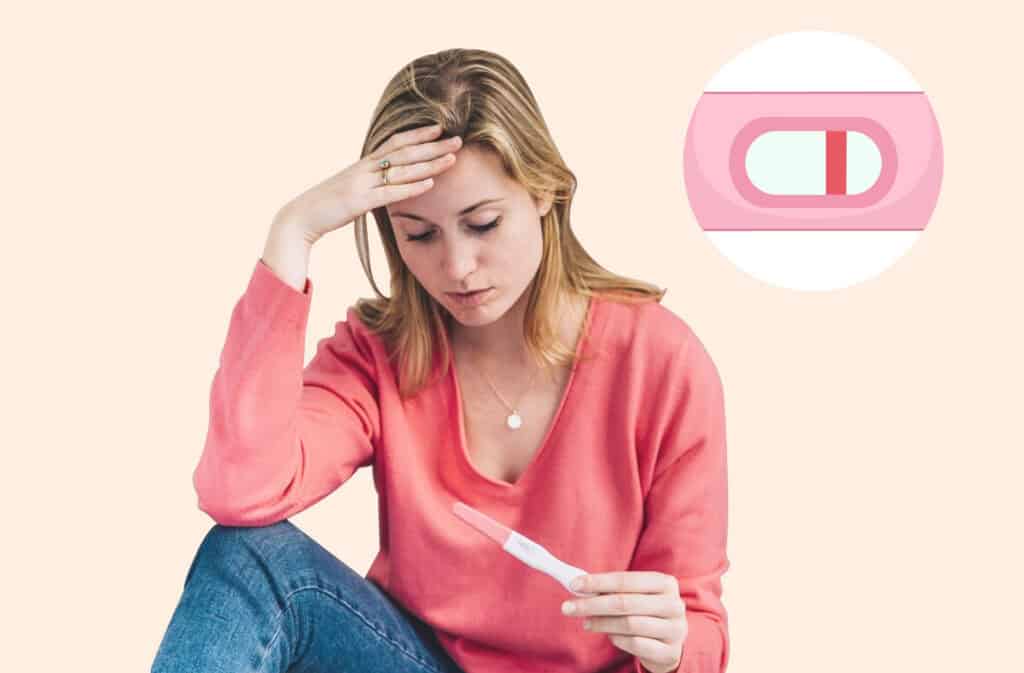
- Updated Feb 10, 2025
- Published
CRAFTED BY HUMAN
Crafted by human At Femia, we provide accurate and up-to-date information at every stage of your journey, from trying to conceive, pregnancy and postnatal support. All content is created by a real person based on in-depth research and own professional experience. Femia ensures that you will receive expert advice, strict accuracy and a personalized approach from our authors/medical experts. Learn more about our editorial policy.
FACT CHECKED
Fact checked At Femia Health, we maintain the highest standards of editorial excellence in delivering content focused on helping you conceive, guiding you through pregnancy, and supporting you postpartum. Explore our content review principles to learn how we ensure the accuracy and quality of our health and lifestyle tips for every stage of your journey.
Even with a healthy lifestyle and regular menstrual cycles, successfully conceiving can take a lot of time. The wait can sometimes feel overwhelming. Problems with ovulation, medical conditions such as Polycystic ovary syndrome (PCOS), blocks in your uterine tubes, or irregularities with sperm health could be contributing factors. If you have been trying for some time, consider getting a fertility consultation to improve your chances.
You may have been trying for months or even over a year, but are still unable to figure out why you are struggling to get pregnant. Only 30% of people conceive in their first month of trying. While your odds improve to 90% in the first year, factors such as age, underlying medical conditions, body weight, and lifestyle all contribute to your odds of getting pregnant. It is common for conception to take some time. To understand your specific reasons for the delay, and simple ways to improve your chances, consulting with your healthcare provider can be key.
Femia offers the most accurate tool for determining fertile days
Why am I not getting pregnant?
If you use Depo Provera injections, this is commonly associated with a delay in the return of fertility. All other contraceptives are not associated with fertility delays and timing of contraception. Additionally, understanding your menstrual cycle and knowing when you are ovulating can take a few months after coming off birth control. Factoring in your health, frequency of intercourse, and of course day-to-day life, it will be months before you get into a rhythm that works for you.
However, even if you are having sex while you are ovulating but not getting pregnant, it might be time to assess what could be some causes for this. For one, and often the most common reason, it has not been long enough since you started trying. Following ovulation, access to your egg lasts for a 24-hour window every cycle.
The “fertile window” is 5 days before ovulation to the day after ovulation. So technically, one can conceive if they have sex before the “actual ovulation date,” if they are still within the fertile window. So even with scheduling sex, it is possible to miss the timing or even get it wrong in the first few months.
In a study of 221 women, only 33% of women conceived after having intercourse on their day of ovulation. Making chances of getting pregnant even lower before your actual ovulation date.
👉Find out more: How long should you be off birth control before trying for a baby
Why is it hard to get pregnant?
One of the primary factors to consider as to why it is so hard to get pregnant while you are consistently trying is your age.
For women 30 years and younger, the chances of conceiving within one year are around 85%. Above 35 years, this falls to 66%, reducing even further to 44% above 40 years of age. Similarly, for men aged 41 – 50, sperm counts were seen to be approximately three times lower compared to men between 21 – 30 years of age. For both men and women, sperm and egg quality also decline with age.
With age, the years of stress, environmental exposure to toxins, and possible lifestyle conditions can also lower your chances of conceiving naturally. So once we settle into life, and decide to have children, many uncontrollable factors contribute as reasons why a woman can’t get pregnant even after trying.
Reasons for not getting pregnant when everything is normal
You may be worrying about the possibility that you are infertile if you are not pregnant after 4 months of trying. However, in women under 35, infertility is defined as an inability to establish a clinical pregnancy after 12 months of trying. Infertility in women over 35, is counted as six months of trying without getting pregnant. While, as we have seen, your age and possible timing of intercourse are possible causes, there are other reasons you might be unable to conceive even after a year of trying.
Struggles with ovulation
For conception to take place, both ovulation and the time of intercourse are crucial. Cycles without ovulation or irregularities in your ovulation could be reasons you are struggling to get pregnant. Ovulatory disorders are observed to be behind 25% of the cases of female infertility. A leading cause of anovulation, noticed among 70% of infertility cases, is PCOS. Other, less common, reasons for dysfunction with ovulation are other hormonal conditions such as thyroid dysfunction, excessive production of prolactin hormone, hypothalamus dysfunction, or primary ovarian insufficiency.
Endometriosis
With endometriosis, the lining of your uterus can be found in locations outside the uterus such as your uterine tubes, ovaries, and other organs of your abdomen. Around 50% of infertile patients may suffer from underlying endometriosis. Because of the obscure symptoms, and waxing and waning disease progress, it may take years before endometriosis is diagnosed. Often the diagnosis of endometriosis is only realized after women seek help for infertility.
Blocked fallopian tubes
You may have been noticing monthly signs of ovulation, even your ovulation kits are coming back positive, and you are not pregnant after one year of trying. Blocked or damaged fallopian tubes could be a reason for this. A simple test, hysterosalpingogram, which looks into your uterus and its connecting tubes can help in diagnosing this block. Your doctor can explore several options to increase your chances of getting pregnant with blocked fallopian tubes.
Problems with sperm health
Male factors alone contribute to 20 – 30% of infertility cases. Of the primary causes, sperm quality and quantity top the list, followed by blockage of vas deferens and erectile dysfunction. When you are first considering a check as to why you are struggling to get pregnant, consider asking your partner to get a semen analysis. Your healthcare provider can give you personalized tips to improve your chances of getting pregnant even if semen analysis shows some abnormalities.
Ovulating but not getting pregnant
In many other instances, you might be ovulating but not getting pregnant. For one, as we have just seen, blockage of your fallopian tubes could be the reason. Having undiagnosed medical conditions such as thyroid issues, diabetes, sexually transmitted diseases or uterine abnormalities can also be contributing to your inability to conceive.
Just like a check is done for sperm quality, with age, and external factors such as environmental exposure, your egg quality can also deteriorate. So even if you are ovulating, chances of successfully conceiving might be affected. Improving your egg quality can often involve simple steps such as reducing stress, exercising, increasing nutrients in your diet, and quality sleep every night.
Common lifestyle factors that may impact fertility
Your lifestyle can also be a reason you are struggling to get pregnant.
Some of the common lifestyle factors are:
- Your diet and regular exercise top the list of important contributors to a healthy lifestyle. A review of literature has shown that being overweight or obese can negatively impact fertility. Additionally, menstrual irregularities are more common among obese women.
- Another lifestyle factor that is likely to contribute to your fertility is stress. While there is no direct link between stress and the likelihood of infertility, cortisol levels, your primary stress hormone, were observed to be elevated more among infertile patients in this systematic review.
- Evaluating your environmental exposure, such as to toxins, heavy metals and plastics should also be taken into account when assessing lifestyle contributors to your fertility. While eliminating all exposure may not be possible, opting for fresher air, individually sourced ingredients for your meals, and chemical-free products might help improve your fertility.
In many instances, just knowing your lifestyle risk factors, and working on them can help boost your fertility naturally.
👉Find out more: Can HPV cause infertility: Understanding the impact on fertility and pregnancy
When to seek medical advice
You should check in with your healthcare professional if you have been struggling to get pregnant for over a year, and are under the age of 35. This time frame reduces to six months if you are over 35.
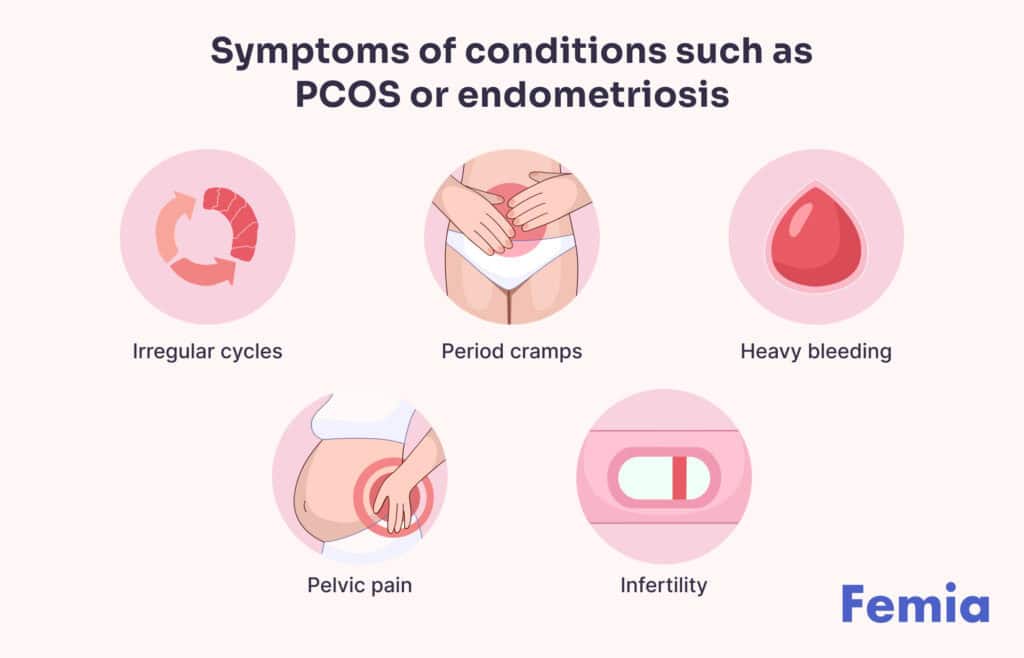
Symptoms of conditions such as PCOS or endometriosis can be difficult to self-assess, especially since they may have overlapping symptoms. Some of these symptoms include:
- Having irregular cycles
- Excessive period cramps
- Heavy bleeding
- Pelvic pain
- Infertility
A fertility expert can help narrow down a diagnosis with the appropriate tests and provide you with individualized care to help improve your chances of conceiving.
You should consider having your partner come along with you and get checked as well, especially if it is the first time you are considering a check-up. You might be ovulating but not getting pregnant, and only tests can assess causes such as blocked uterine tubes or poor sperm morphology.
It is reassuring to know that most causes of infertility are treatable, often with simple lifestyle changes.
Femia offers the most accurate tool for determining fertile days
Questions from the Femia community
Could my partner’s health affect our chances of getting pregnant?
Almost 50% of the cases of infertility are due to a contributing male factor. These include a low sperm count, poor sperm quality, erectile dysfunction, or a block in the vas deferens. If you have been trying for over a year to get pregnant, both you and your partner should consider a check-up to source out the underlying cause.
Can previous contraceptive use affect my fertility?
Natural methods of contraception such as condoms or the rhythm method do not affect your fertility. Using hormonal contraception suppresses natural ovulation. Most women have immediate return of ovulation, however, If you used Depo Provera injections, it may take a few cycles for hormones to regulate and favor natural ovulation. In most cases, contraception has limited effects on your fertility.
How does PCOS impact my ability to conceive?
A hallmark of PCOS is irregular or absent ovulation. So if your periods are irregular due to PCOS, it can be difficult to know when you are ovulating. This affects your ability to estimate your fertile window, impacting your chances of getting pregnant with each successful ovulation.
The bottom line
Even if you are doing everything right, from sex during your fertile window to leading a healthy lifestyle, you might still be struggling to get pregnant. One simple reason is often how long you have been trying for. Timing ovulation can take a few months, and taking steps to improve your chances of getting pregnant can also take some time.
Being unable to successfully conceive in one year, or six months if over the age of 35, should warrant a check-up with your healthcare provider. Often lifestyle factors such as smoking, limited nutrition, a sedentary lifestyle, or environmental stressors could be a reason for not getting pregnant when everything is normal. A fertility expert can help improve your chances of getting pregnant with underlying health conditions.
References
- Taylor, A. “Extent of the Problem.” BMJ, vol. 327, no. 7412, Aug. 2003, pp. 434–36. https://doi.org/10.1136/bmj.327.7412.434.
- Wilcox, Allen J., et al. “Timing of Sexual Intercourse in Relation to Ovulation — Effects on the Probability of Conception, Survival of the Pregnancy, and Sex of the Baby.” New England Journal of Medicine, vol. 333, no. 23, Dec. 1995, pp. 1517–21. https://doi.org/10.1056/nejm199512073332301.
- Delbaere, Ilse, et al. “Knowledge About the Impact of Age on Fertility: A Brief Review.” Upsala Journal of Medical Sciences, vol. 125, no. 2, Jan. 2020, pp. 167–74. https://doi.org/10.1080/03009734.2019.1707913.
- Pino, Víctor, et al. “The Effects of Aging on Semen Parameters and Sperm DNA Fragmentation.” JBRA, Jan. 2020, https://doi.org/10.5935/1518-0557.20190058.
- Borght, Mélodie Vander, and Christine Wyns. “Fertility and Infertility: Definition and Epidemiology.” Clinical Biochemistry, vol. 62, Mar. 2018, pp. 2–10. https://doi.org/10.1016/j.clinbiochem.2018.03.012
- Walker, Matthew H., and Kyle J. Tobler. “Female Infertility.” StatPearls – NCBI Bookshelf, 19 Dec. 2022, www.ncbi.nlm.nih.gov/books/NBK556033/#.
- Hamilton-Fairley, Diana, and Alison Taylor. “Anovulation.” BMJ, vol. 327, no. 7414, Sept. 2003, pp. 546–49. https://doi.org/10.1136/bmj.327.7414.546.
- Maggiore, Umberto Leone Roberti, et al. “Epidemiology of Infertility in Women With Endometriosis.” Best Practice & Research Clinical Obstetrics & Gynaecology, vol. 92, Jan. 2024, p. 102454. https://doi.org/10.1016/j.bpobgyn.2023.102454.
- Huang, Baoyi, et al. “Global, Regional and National Burden of Male Infertility in 204 Countries and Territories Between 1990 and 2019: An Analysis of Global Burden of Disease Study.” BMC Public Health, vol. 23, no. 1, Nov. 2023, https://doi.org/10.1186/s12889-023-16793-3.
- Seyhan, Ayse. “Uterine Abnormalities and Their Impact on Implantation.” Reproductive BioMedicine Online, vol. 47, Nov. 2023, p. 103436. https://doi.org/10.1016/j.rbmo.2023.103436.
- Zheng, Lei, et al. “Obesity and Its Impact on Female Reproductive Health: Unraveling the Connections.” Frontiers in Endocrinology, vol. 14, Jan. 2024, https://doi.org/10.3389/fendo.2023.1326546.
- Karunyam, Bheena Vyshali, et al. “Infertility and Cortisol: A Systematic Review.” Frontiers in Endocrinology, vol. 14, June 2023, https://doi.org/10.3389/fendo.2023.1147306.
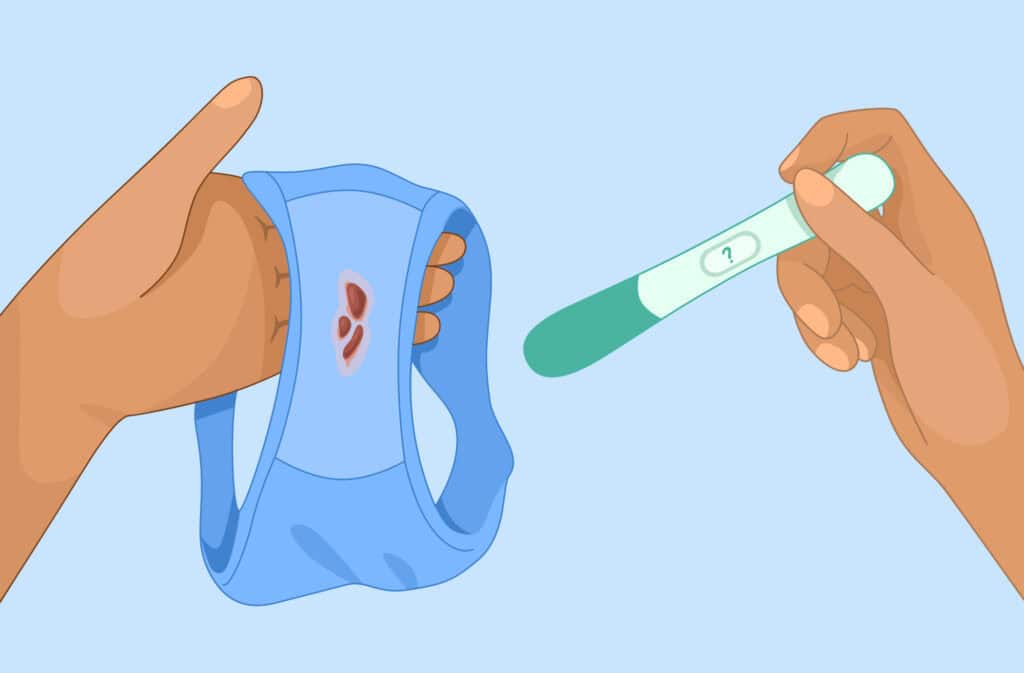
Not sure you’re experiencing Plan B spotting vs implantation bleeding? Learn how to tell the difference based on timing, flow, and symptoms.
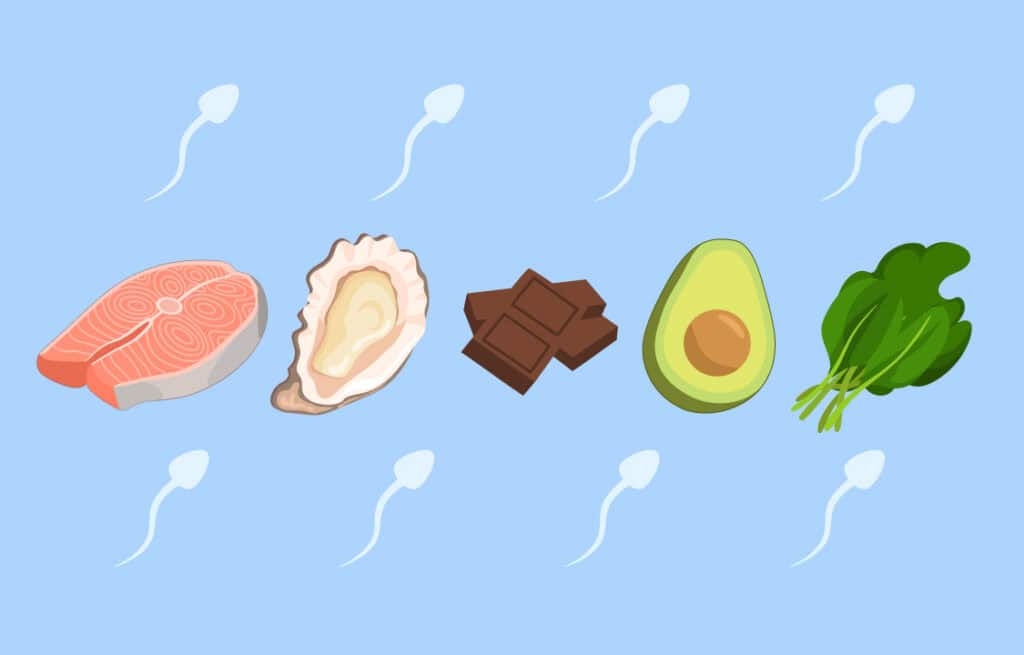
Discover the best foods and nutrients that can enhance your sperm quality and boost your fertility. Combine sperm—boosting nutrients with a healthy lifestyle to optimize reproductive health.
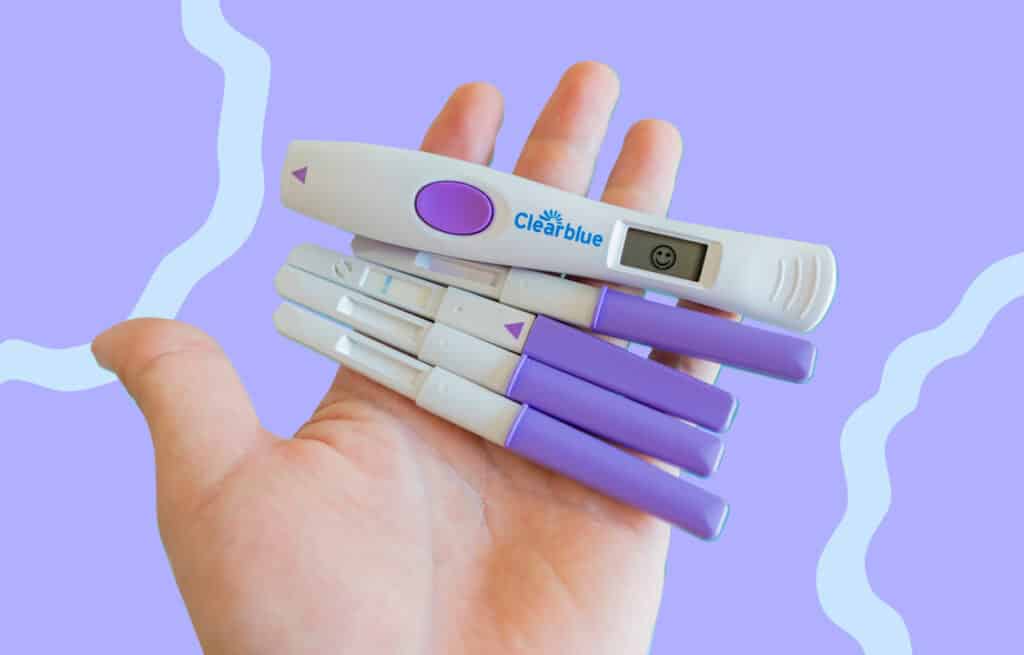
Learn what ovulation means, how it happens, signs ovulation is over, and how to track ovulation for pregnancy planning.

